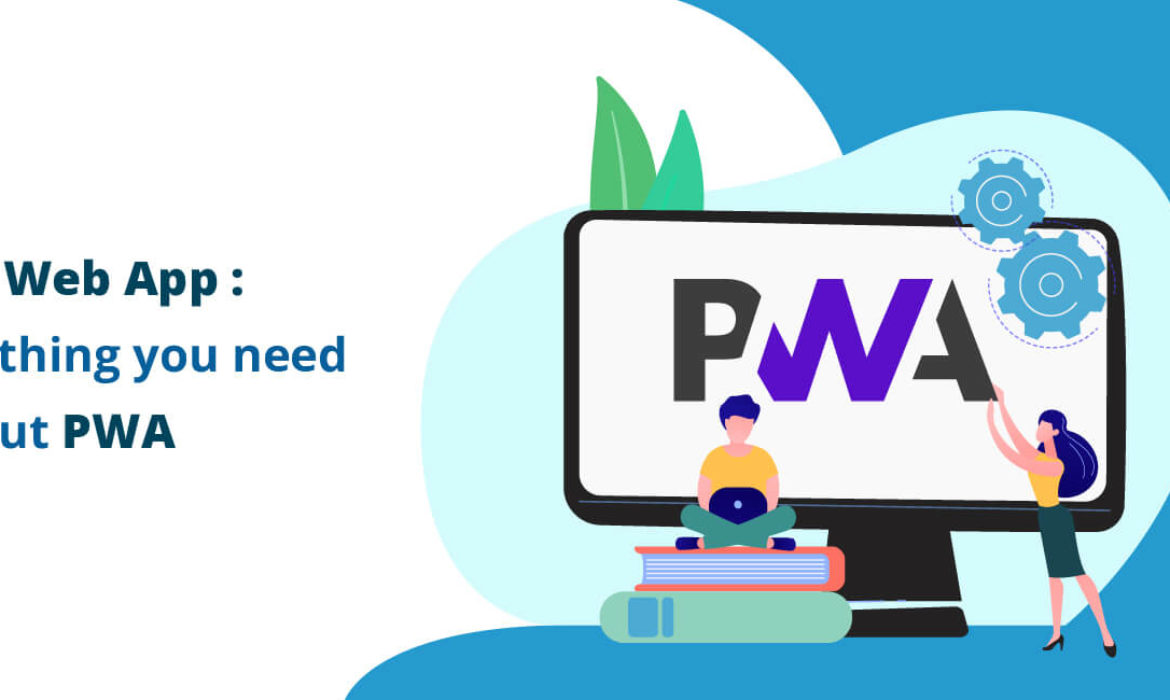Progressive Web App: Here’s everything you need to know about PWA
Are you curious to know what PWA is? Imagine having apps that you don’t have to download and can use even if you don’t have internet access? These apps will give you a much better user experience compared to native mobile apps with their cross-platform ability.
This blog will explain everything you need to know about PWA. Let us begin!
What is PWA?
Progressive Web Application is an application built based on HTML, CSS, and JavaScript web technologies. It can perform many functions like a mobile application because the Progressive Web Application uses a number of web extensions. You can also say that a PWA is similar to a mobile website, but with additional features, and although you can access it using a URL in a browser, unlike a website, you can add it to your home screen.
What Makes a Web App Progressive?
Not every web app can be called a PWA. The real PWAs consists of encrypted HTTP protocol (HTTPS), one or several service workers, a manifest file, and a fast-loading time due to its core architecture. Let’s take a closer look at these PWA features.
HTTPS- Encrypted HTTP protocol
Any web application should be a secure site and browsed through a secure network. This makes a website a trusted place and allows users to make secure transactions without having second thoughts.
Manifest file
The manifest file is a JSON file. Its primary role is to manage the way an app appears to the end-users. It also ensures PWA discoverability by providing the app’s name, start URL, icons, and any other information needed to transition from a website to an app format.
Service workers
Service workers are scripts that control the way a web browser handles network requests and asset caching. With the help of service workers, web developers create reliable and fast web pages that can work offline as well.
Advantages of PWAs that positively impact businesses
Quick and Easy To Install
PWAs are installed straight from the web browser to any device. Having this feature, user abandonment of a web app is significantly lower with a vividly enhanced advantage towards user experience. The installed app remains on the desktop or mobile device home screen and can be easily accessed from there.
Page Loading Speed
Progressive web apps load much faster than normal websites. As it is based on the method of intelligent caching, the first load, as well as the subsequent loads, are faster. Due to this, the bounce rate for PWA is lower compared to mobile websites.
Operating Offline
Besides working everywhere, PWAs can operate offline. Thus, when your network connection is unstable this type of app will still work as a clock, but in offline mode.
Platform independence
While native mobile apps are platform-specific and can only be accessed from their own OS, such as Android or iOS, PWAs are browser-based and can run on any OS.
Eliminating the Development Cost
PWA becomes a good investment when it comes to functioning on different devices and adjusting to the screen sizes. Being so convenient and cross-platform, a PWA reduces developers’ time for its deployment and the customer’s costs.
The Best Tools for Building Progressive Web Apps
Ionic
Ionic is a powerful PWA tool based on Apache Cordova and Angular framework that works on an advanced tech stack, allowing developers to use competing frameworks. The Ionic provides a rich toolkit for covering PWA functionality, including UI elements, unit tests, pre-built routing, etc. It is an intelligent solution for those who are moving from Cordova/PhoneGap to cross-platform mobile app development and responsive web apps.
Polymer
Built by Google, Polymer is a lightweight JavaScript framework that contains various PWA tools. It has a wide array of templates and offers one of the best documentation. Polymer is one of the best PWA development tools, creating reusable components and syncing data with devices. Thus, simplifying the entire development process. Providing APIs, using PRPL patterns for better optimization, Polymer is an excellent PWA technology.
AngularJS
Being one of the oldest JS frameworks and the third most used PWA development technologies, AngularJS adopts a well-defined and mature methodology. It is well equipped with all the techniques, allowing developers to easily add several functionalities. Thus, offering simplification of the process to quickly build a PWA. It has one of the most extensive community support that is continuously in sync with Google for regular updates.
VueJS
VueJS is an open-source and one of the most advanced JS frameworks, widely used due to its easy coding feature. Being one of the fastest evolving libraries because of the ease of coding and high-speed rendering, VueJS is a standard solution for building smaller projects and MVPs. Along with offering easy coding and rendering, providing precise and detailed documentation, VueJS orders fast app delivery
React PWA Library
The ReactJS framework is used to create single and multi-page apps. With additional JS libraries, developers can generate server-side and client-side rendered pages, routing, API integrations. Being one of the top choices of progressive web app development, ReactJS offers better documentation, extensive libraries, ecosystem backing, a vast dev community, etc., making it an excellent choice for creating PWAs.
Famous Brands That Switched to PWAs:
Here are a few examples of PWA Development Projects which you can see used by everyone across the World:
- Starbucks
- Uber
- Spotify
- Wikipedia
- BMW
Wrapping Up
The need for progressive web apps is growing each day. This blog explains everything you need to know about PWA.

